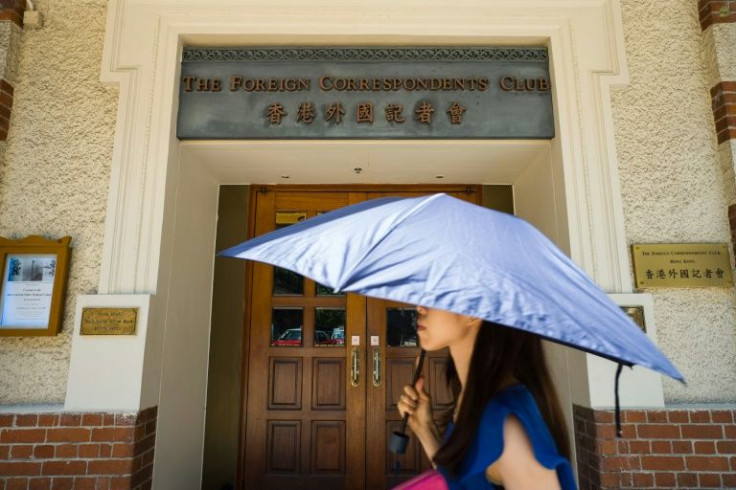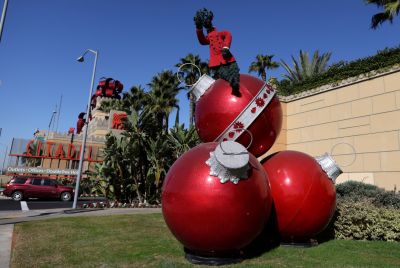Hong Kong Press Club Scraps Rights Awards Over 'Red Line' Fears
Hong Kong's foreign press club scrapped its annual human rights awards on Monday citing fears it could be prosecuted for crossing "new red lines" as Beijing stamps out dissent in the international business hub.
The decision has triggered a row within the Foreign Correspondents' Club Hong Kong (FCCHK) and sparked resignations from within its press freedom committee, four people with knowledge of the decision told AFP.
The FCCHK has hosted an annual Human Rights Press Awards for the last 26 years to recognise rights-related reporting from around Asia.
But this year's awards were canned at the last minute, just weeks before the winners were set to be announced.
"Over the last two years, journalists in Hong Kong have been operating under new 'red lines' on what is and is not permissible, but there remain significant areas of uncertainty and we do not wish unintentionally to violate the law," club president Keith Richburg said in a statement.
"This is the context in which we decided to suspend the Awards."
The decision came after five award categories were to be won by Stand News, a local outlet that shuttered late last year as its top editors were charged with sedition, according to the insiders.
The club's board were rattled by legal advice that they might face a probe under sedition or Hong Kong's new national security law if they went ahead with giving awards to Stand News.
The following day eight members of the club's press freedom committee resigned in protest.

"The fact eight of us resigned speaks volumes about the fact we now think our function is useless," Shibani Mahtani, one of the committee members who quit -- and who also helped judge the awards -- told AFP.
"I just think we should be real and intellectually honest about what we're seeing in Hong Kong instead of pretending things are normal and that we're still able to be a genuine press club," she added.
Hong Kong was once a bastion of media freedom in Asia but that reputation has taken a battering as China remoulds the city in its own authoritarian image following huge democracy protests three years ago.
Three government critical local outlets, including popular tabloid Apple Daily, have shuttered following national security police probes. The Hong Kong Journalist Association, which represents local reporters, is currently deciding whether to disband.
Authorities often point to the continued existence of the FCCHK as proof that media freedoms remain respected, something that some of those who resigned now feel increasingly alarmed by.
Tensions within the press freedom committee were already high this month after the FCCHK's board vetoed a statement expressing concern about the arrest of veteran journalist Allan Au -- a contributor to Stand News -- for sedition.
"By censoring statements and ending the awards the club is not only failing to uphold this mission but risks being used as a prop to keep up the myth that things in Hong Kong are carrying on as normal," Timothy McLaughlin, an independent journalist who also resigned from the committee, told AFP.
The FCCHK said it intends "to continue promoting press freedom in Hong Kong while recognising that recent developments might also require changes to our approach".
The club is under both political and financial pressure.
Late last year Beijing's foreign ministry said the FCCHK had "emboldened anti-China elements" by releasing a statement critical of the sedition case against Stand News.
The club is also currently renegotiating its lease with Hong Kong's government for the property it has occupied for the last four decades.
© Copyright AFP 2024. All rights reserved.





















